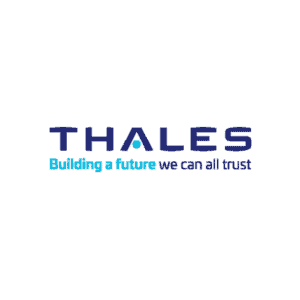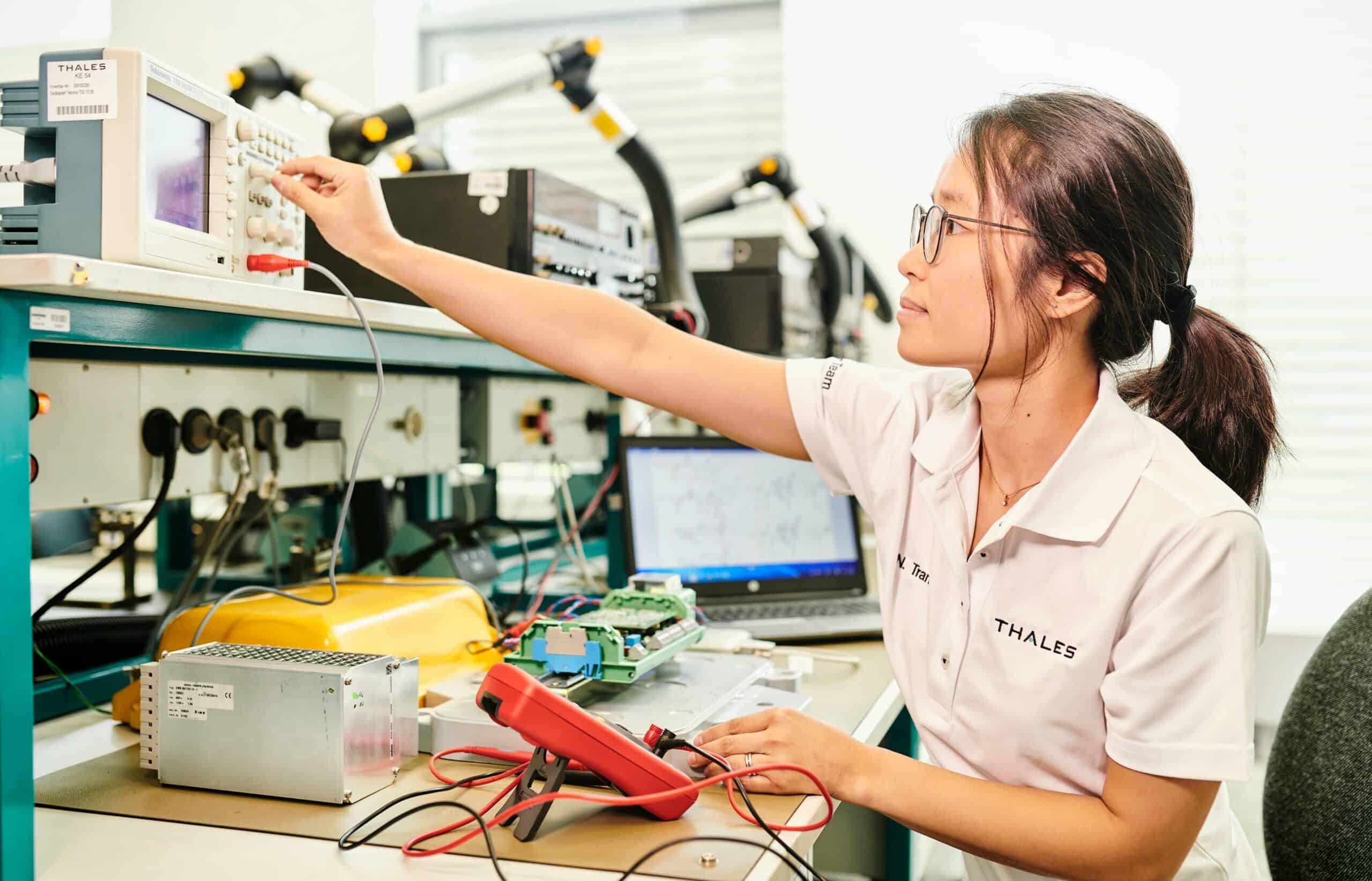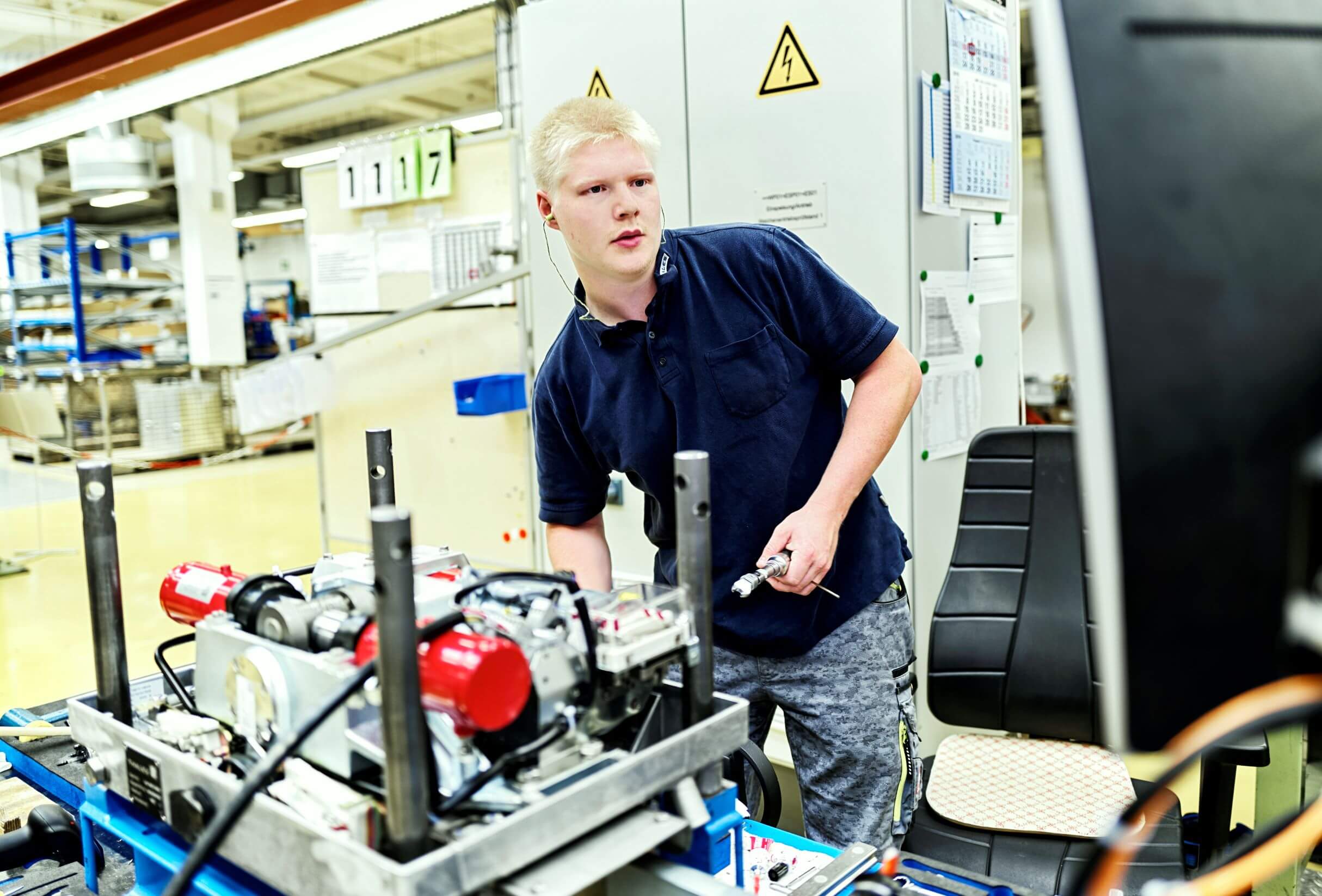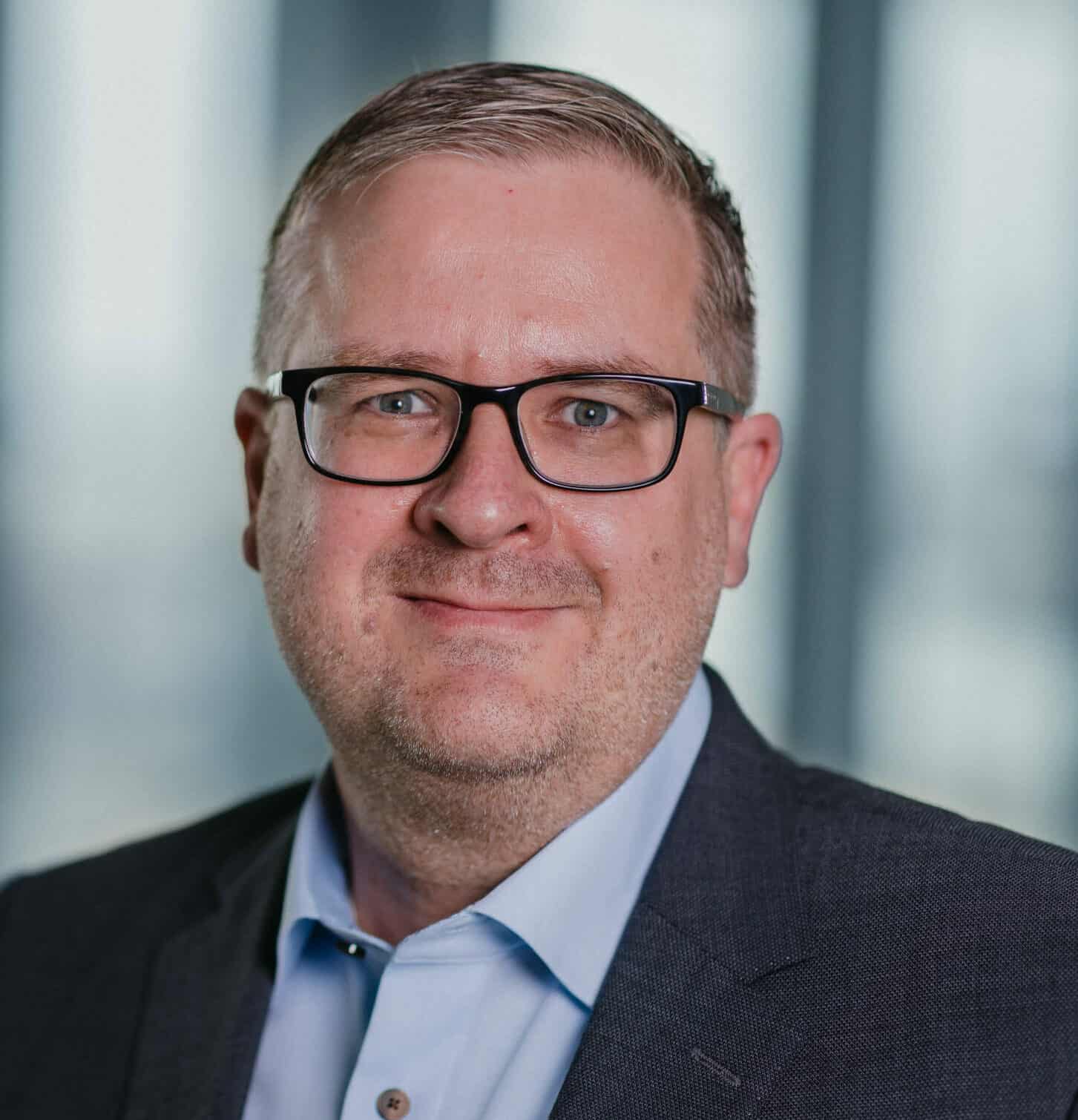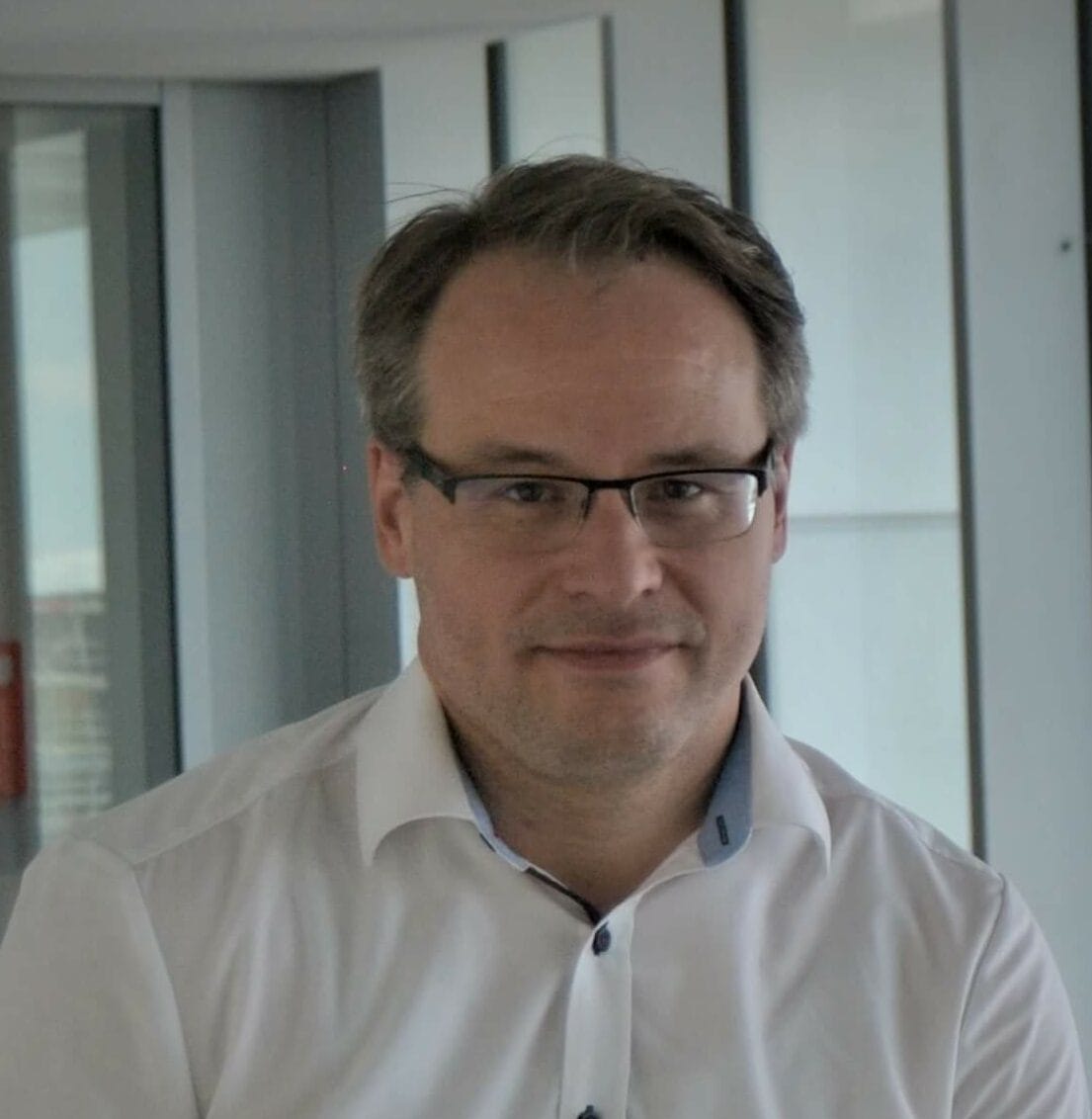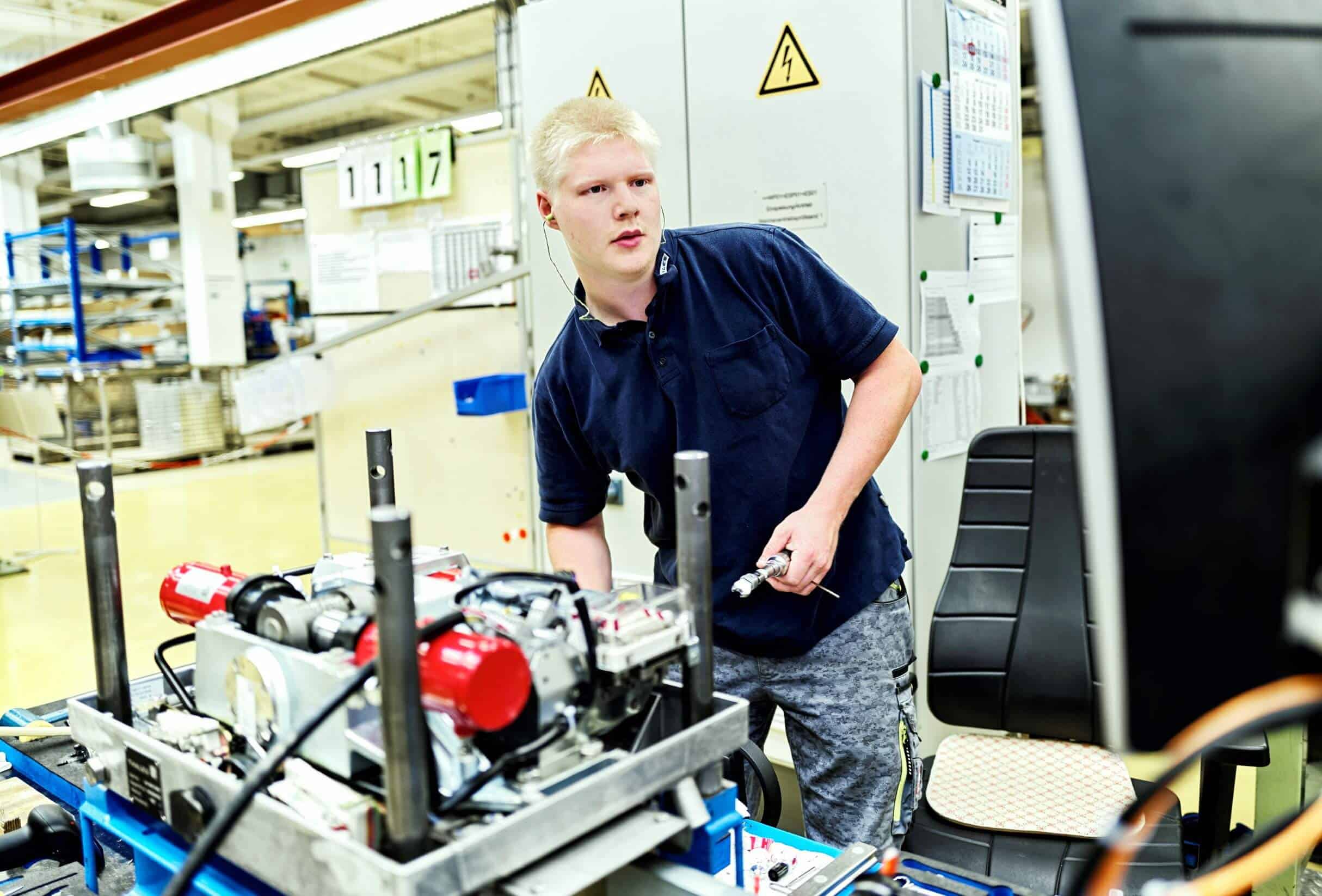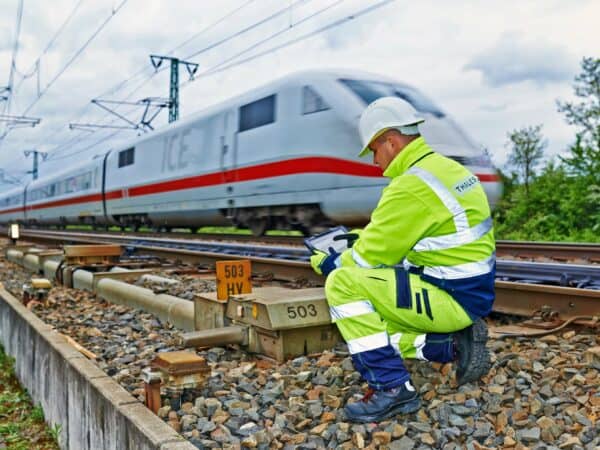
SHOP FLOOR MANAGEMENT AT RAILROAD ENGINEERING CHAMPION THALES
Thales is one of the world’s largest suppliers of control and safety systems for mass transit and mainline rail transport. More than 250,000 solutions from Thales have been installed in the areas of interlocking technology, point machines, signals, axle counters, control centers, autonomization, and cyber security, which support the expansion of sustainable mobility by rail and rapid implementation of transport revolution towards rail planned for Germany.
Thales has outstanding expertise in the digitization of platforms in operation today using using own bridging technologies, as well as in the provision of cybersecurity solutions with Thales-specific architecture that leads the way with a “cyber-by-design” approach. Thales thereby supports both operators in terms of reliability, punctuality, and operational safety and all rail passengers in their customer experience.
Not least because of its range of capabilities, Thales is a fundamental project partner of Deutsche Bahn in the “Digital Rail for Germany” project, with which the German government and Deutsche Bahn play a pioneering role throughout Europe.
Reliable freight transport, punctual passenger trains, efficient capacity utilization, better climate: With its project “Digital Rail for Germany”, Deutsche Bahn aims to do nothing less than revolutionize rail transport.
By 2030, the traffic revolution project aims to succeed with the help of industry partners through extensive digitization of existing rail infrastructures in Germany, without building any additional railroad tracks.
Thales in Germany is the central partner in this ambitious digitization project for rail infrastructures, which is setting the pace for all of Europe. At the end of 2020, the company was awarded a contract by Deutsche Bahn for part of the major project “Digital Node Stuttgart” project, which will be of central importance for optimizing rail transportation throughout Germany and beyond.
A task of this dimension and critical importance leaves no room for error or inefficiency. In order to ensure that this project can be rolled out on time and on budget despite the pandemic and sometimes severely disrupted global supply chains, the Thales Ground Transportation Systems unit in Germany has adopted an agile approach.
“With a global pandemic and disrupted supply chains worldwide, it was clear that we would not be successful in the future with a traditional management and leadership style,” says Markus Fritz, Vice President Main Line Signaling Domain Business Germany. “Our goal was to work and manage less top down. Instead, we wanted to be able to track down problems more quickly, make them transparent, and make the right decisions as quickly and efficiently as possible. The number and duration of our meetings must be cut in half or significantly improved in quality.”
During his three and a half years working for Thales in Melbourne, Australia, Markus Fritz had gained excellent and lasting experience with Shop Floor Management (SFM), a method from which he also greatly expected in his new area of responsibility in Germany. The implementation was to be carried out on a partnership basis together with consultants from Staufen: “Cooperation with external consultants is always very important, because important experiences and information from other company projects always flow into our joint work. We don’t have to make the same mistakes that others have already made,” says the Thales manager pragmatically.
Leading from the top – freedom and employee perspective
It quickly became clear that top management should lead by example in innovations. “In order to get all employees under one roof when it comes to Shop Floor Management, a strong commitment from the very top is essential. Because that’s where everyone has to pull together. Once this is achieved, Shop Floor Management can be extended to other teams and cascaded,” explains Thomas Klug, who as Director Supply Chain is responsible for “Lean” at Thales in Germany.
Thomas Klug and his team accompany the implementation very closely: “It’s not about egalitarianism but about centering the lean approach around people and their problem solutions,” says Klug.


when it became clear that the SFM board would serve to gather information that was scattered around in a single place and make it transparent, that provided the necessary acceptance.
RONALD STÖCKLE
Senior Project Manager Transportation, Thales Deutschland
Digital Shop Floor Management as a response to the corona pandemic
A particular “implementation booster” was the corona pandemic. It forced Thales as a company not to start with analog boards and then switch to digital solutions later but to work in a networked fashion from the very beginning.
“Particularly when working from home, digital Shop Floor Management is a terrific tool for creating transparency and improving communication,” says Ronald Stöckle, who is the Program Manager in charge of the Thales development program as part of “Digital Rail for Germany.”
“In the past, some team members volunteered to tell us what the status was, while others had to be frequently asked. Now everyone has the opportunity to transparently write the current state of affairs and critical issues on cards. We then go through the status step by step and colleagues say where they need support.”
Nevertheless, there were also critical voices at the launch. Ronald Stöckle: “This mainly concerned reporting. Some feared that the new SFM method would create additional bureaucratic effort. But when it became clear that the SFM board would serve to gather information that was scattered around in a single place and make it transparent, that provided the necessary acceptance.”
Broad employee involvement and qualification as a success factor
Thales is now a third of the way through the rollout, according to Lean Project Manager Klug. Another phase is about to begin. The aim is to further improve value creation within the company, project by project, and – along with this – horizontal collaboration, ultimately overcoming any silo thinking that still exists. Thomas Klug: “The goal is to form a powerful fleet of all the small rowboats in an agile production environment that can successfully sail from inland waters out into the sometimes stormy sea.”
Jan Haug, Partner at Staufen AG, is very confident that this will succeed based on the course of the project so far: “In addition to top management taking on a strong role model function, the broad involvement of stakeholder management and qualification of employees as well as the training of multipliers has also ensured this excellent initial situation. In addition, a pilot cascade quickly visualized achievable successes with Shop Floor Management.”
Mastering the challenges in the supply chain with Lean Management
In two years, according to the plan of Rail Division Manager Markus Fritz, the company should reach a certain level: “Then we can still make specific improvements. But I don’t want to be at the point where we have to introduce Shop Floor Management or explain the company-wide benefits per se. In the future, we will consider whether and where to readjust and which hurdle to tackle next.”
Not least, the ongoing global crisis requires a different kind of management, he says. Now, for example, the team is facing the challenge of too few colored glass panes for railroad signals. The discs must comply with a special, legally regulated specification for Deutsche Bahn and cannot currently be industrially manufactured. “Lean Management and an orchestra of tools help us to ensure that we can meet today’s and tomorrow’s challenges and reliably serve our customers and partners,” emphasizes Markus Fritz. “That’s why I will continue to proactively push this topic.”
The company
Thales (Euronext Paris: HO) is a global leader in cutting-edge technologies, investing in digital and “deep tech” innovations – connectivity, Big Data, artificial intelligence, cybersecurity, and quantum technology – to create a promising future that is vital to the development of our society. The customer base includes governments as well as companies and organizations in the transportation, defense, aerospace, and digital identity and security sectors.
81,000
employees
68
countries
You might also be interested in
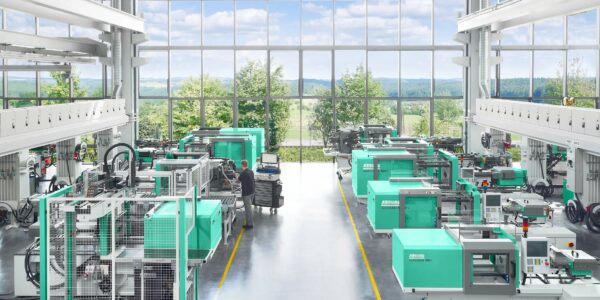
Communication, focus and commitment
In the plastics processing industry, too, the trend toward individualization is creating increasingly complex process landscapes. The machine manufacturer Arburg is responding to this with a comprehensive organizational change.
Read more
Lean@HILTI:”this process never ends”
Many companies use Lean Management methods to improve individual areas. But Lean is much more than just a toolbox. As a corporate philosophy, it enables holistic transformation, as the example of the Liechtenstein-based Hilti Group shows. Dr. Stefan Nöken, member of the world’s leading partner for professionals in the construction industry, has accompanied this journey from the very beginning.
Read more